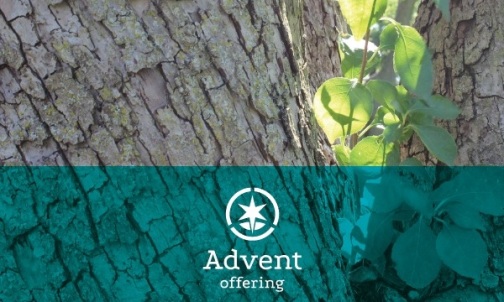
Find worship resources at www.brethren.org/adventoffering
Photo by Matt DeBall
A sermon starter written for the 2017 Advent Offering by Thomas Dowdy, pastor of Imperial Heights Church of the Brethren in Los Angeles, Calif.
“When he came to Nazareth, where he had been brought up, he went to the synagogue on the sabbath day, as was his custom. He stood up to read, and the scroll of the prophet Isaiah was given to him. He unrolled the scroll and found the place where it was written: ‘The Spirit of the Lord is upon me, because he has anointed me to bring good news to the poor.’… The eyes of all in the synagogue were fixed on him. Then he began to say to them, ‘Today this scripture has been fulfilled in your hearing.’ All spoke well of him and were amazed at the gracious words that came from his mouth. They said, ‘Is not this Joseph’s son?’”(Luke 4:16-18, 20-22)
Preaching in your hometown can be very challenging. For some people, it will be difficult to see who you are today because they can only see who you used to be. Some have high expectations, while others remain very critical.
Recently, I received an invitation to attend my high school class reunion. Most class reunions involve people rehashing old stories and checking up on your current status in life. As such, I was very reluctant to attend because I always prefer looking forward rather than backward. I even shared with a friend that I didn’t want to go. He felt it was important for me to attend. He said, “You are a different person now.” I realized he had a point, recognizing that I am in ministry now. He went on to say, “I’m sure someone there will need to hear from you.”
I couldn’t help but think of Jesus’s options when he visited the temple in his hometown of Nazareth. He could have not gone, or he could have only said something that made the people feel good about themselves, but he did the opposite. Jesus had a mission to fulfill the promise of God. He knew it was going to upset the status quo, and yet he did it anyway.
Coming home to share good news is exciting to both the giver and receiver; however, sharing words of perceived condemnation is altogether another matter. The people in the temple felt good hearing Jesus read the words of Isaiah because they were words of perceived hope and fulfillment to those that believed they were of the chosen ones. However, the purpose of Jesus was to share God’s message of inclusion not exclusion. When Jesus read from the scroll, people felt good about the encouraging words because they believed it was only meant for them. But when Jesus continued to expound on the text, the people became angry as it exposed their inner, self-seeking purposes.
The Spirit continues to expose us today. Does it make you angry to include others in “your ministry”? Do you feel upset when others outside your church or group benefit from the work of your (perceived chosen) group? If so, your thinking about God’s Kingdom needs to grow. Your purpose and our purpose is to spread good news to the poor. Heal the broken hearted and free the captives. Provide wide open spaces to those who are imprisoned. Comfort the grieving. And so much more.
This greater mission should make you feel good. God’s word is fulfilled as you share the good news of inclusion. This is what must be preached in your hometown and everywhere you go.
The suggested date for the Advent Offering is December 17. Find worship resources at www.brethren.org/adventoffering or give today at www.brethren.org/give .




